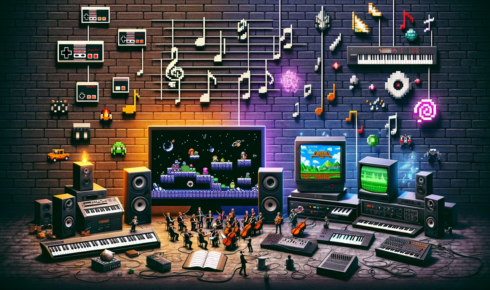In recent years, the line between listening to music and playing a game has started to blur. Music games are no longer simple rhythm-matching challenges—they’re immersive experiences that combine story, strategy, and performance. From interactive soundscapes in indie games to chart-topping hits in mainstream titles, the fusion of audio and interactivity is revolutionizing the way we experience sound.
Storytelling Through Sound
Modern music games are becoming more cinematic and narrative-driven. Titles like Sayonara Wild Hearts and Tchia use music as a storytelling device, where the soundtrack reacts to player decisions and emotions. This dynamic approach creates a unique journey with every playthrough, reinforcing the emotional connection between the player and the music. In these games, you’re not just following the beat—you’re shaping it.
Gaming as a Music Discovery Tool
For many players, music games are also a gateway to discovering new genres, artists, and cultures. Whether it’s an electronic remix in Fuser or traditional Japanese drums in Taiko no Tatsujin, the diversity of music featured in games encourages exploration. It’s a subtle but powerful way of broadening listeners’ tastes while providing an engaging challenge. Developers are even partnering with real-world artists to debut tracks exclusively in games, reshaping how music is released and consumed.
Community and Customization
A vibrant community culture surrounds music games. Players don’t just compete for high scores—they create and share custom tracks, design new levels, and even build full-scale mods. This grassroots creativity turns gaming into a collaborative musical project, where the boundaries between artist and audience fade. Online forums, livestreams, and challenges fuel this community, and it’s not uncommon for players to connect through shared musical tastes.
How olengtogel Ties In
Interestingly, platforms like olengtogel are seeing cross-interest from gaming communities, particularly where chance, timing, and reward are core mechanics. The instant feedback and gratification that music games provide mirror some of the dynamics found in chance-based entertainment. While vastly different in purpose, both spheres attract users who enjoy fast-paced, immersive experiences that test reflexes and instincts.






